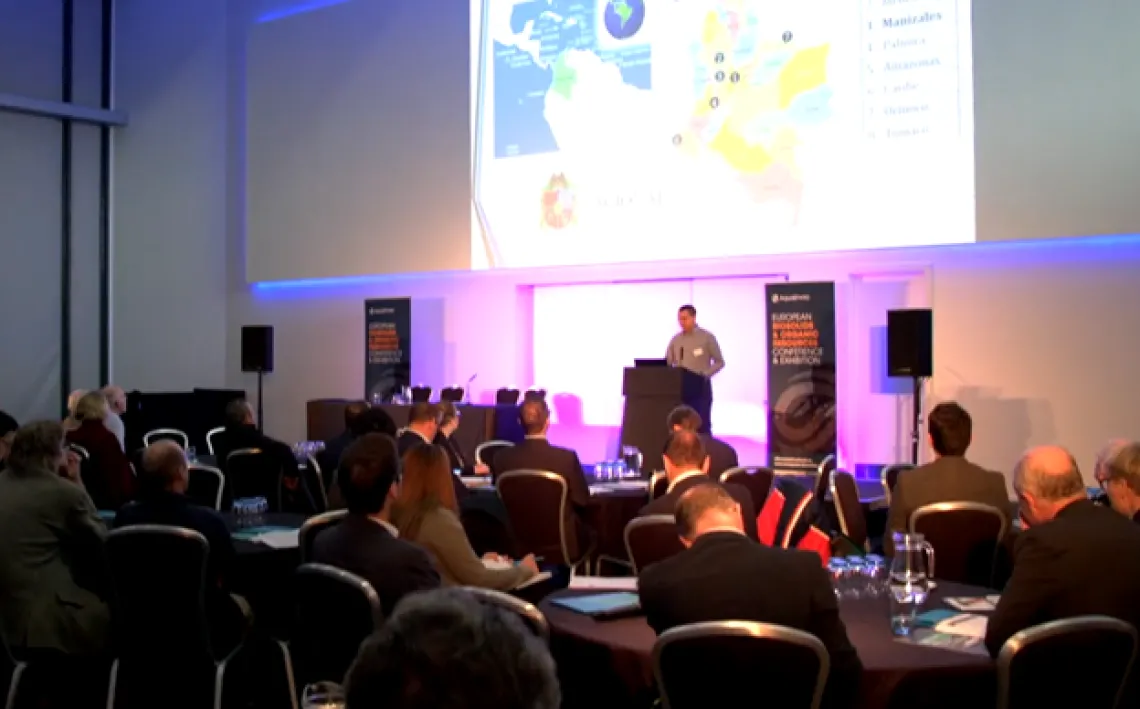WEST Center researchers share expertise at relaunched conferences

Presentation at European Biosolids and Bioresources Conference and Exhibition, Nov. 2021
In recent months, Dr. Charles Gerba and Dr. Ian Pepper have been especially in demand at water and environmentally focused conferences. Dr. Gerba, professor in the Environmental Science Department and researcher at WEST Center, attended the Water Environment Federation’s Technical Exhibition and Conference (WEFTEC) in Chicago held October 16-20, 2021. This conference is noted as “the largest annual water quality exhibition in the world,” with an expansive show floor providing access to cutting-edge technologies and sessions and social time allowing attendees opportunities to learn and network. At the 2021 conference, Dr. Gerba, updated recent research on the removal of pathogens by wastewater treatment and residuals. Methods for the detection of viruses have improved rapidly during the last few years. The number and types of viruses, as well as the sensitivity of methods has allowed for their study more easily at full-scale treatment plants. This has allowed for the assessment of the degree of treatment plant variability in the removal of pathogens at full-scale operations. This will lead to better understanding of factors to improve pathogen removal.
Also in Fall 2021, Dr. Ian Pepper, Regents Professor at the University of Arizona and Director of WEST Center, traveled to the UK for the European Biosolids and Bioresources Conference and Exhibition. This conference was held in Newcastle, UK on November 16-17, 2021, and participants attended in person or virtually from locations around Europe and the United States. Dr. Pepper, a long-time expert in biosolids, presented research on the “Incidence and migration of PFAS in soil following long-term land application of Class B Biosolids.” Perfluorinated compounds known as PFAS are found in many household items such as carpets, cushions and even frying pans as anti- stain and anti – stick agents. Unfortunately, they are also found in biosolids, and since they are mobile, PFAS from land applied biosolids could result in contaminated groundwater, with subsequent adverse human health effects. He is currently co-developing a national collaborative study to broadly evaluate potential impacts of PFAS from land application of biosolids.
To learn more about research led by Dr. Gerba or Dr. Pepper, contact them at:
Dr. Charles Gerba – gerba@email.arizona.edu
Dr. Ian Pepper – ipepper@email.arizona.edu

